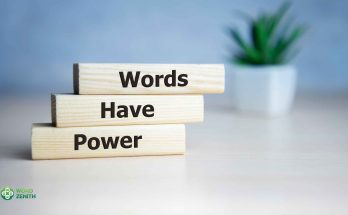Puzzles and brain teasers are more than just fun distractions – they are powerful tools for enhancing your cognitive abilities. Challenging your mind with different types of puzzles on a regular basis provides a workout for key cognitive functions. Just like physical exercise builds muscle, exercising critical thinking skills strengthens your memory, reasoning, focus, and problem-solving. Read on to learn more about how different puzzles uniquely benefit the brain.
Spatial Reasoning Puzzles
Spatial reasoning involves visualizing and mentally manipulating objects in space. Jigsaw puzzles, 3D construction toys, and Rubik’s cubes require identifying spatial relationships and patterns to solve them. Mastering spatial puzzles enhances skills like:
- Mental Rotation – Visualizing how objects would look rotated or viewed from different angles. Useful for tasks like packing, assembling furniture, even parking a car.
- Visual-Spatial Processing – Essential for mapping spaces, navigation, distinguishing left from right, and accuracy in sports, driving, and other activities.
- Image Manipulation – Skill at altering images in your mind’s eye. Architects, designers, and artists especially rely on this ability.
Regularly challenging your spatial reasoning keeps these critical cognitive capacities sharp as you age.
Logic Puzzles
Logic puzzles require deducing rules and constraints from limited clues, then drawing conclusions through careful reasoning. Sudoku, maze challenges, deductive reasoning puzzles, and logic grid puzzles flex logic skills, including:
- Analytical Thinking – Breaking down all information and identifying key patterns and connections between components.
- Evaluating Constraints – Recognizing restrictions that govern the puzzle so valid conclusions follow the rules.
- Deductive Reasoning – Using stated facts and conditions to determine additional information by necessity and eliminate contradictions.
- Strategic Systematic Thinking – Approaching the puzzle systematically, considering implications of each choice to reach the solution.
Logic puzzles build the thinking foundation for math and science skills and sharpen rational problem solving for daily decisions.
Word Puzzles
Word puzzles like anagrams, word searches, and crosswords give your frontal lobe a thorough language and vocabulary workout. The mental tasks leveraged by word puzzles include:
- Pattern Recognition – Identifying letter patterns quickly, even when words are obfuscated. Supports reading comprehension.
- Orthographic Processing – Recalling correct spelling of words. Strengthens writing accuracy.
- Verbal Fluency – Generating many related words rapidly aids conversation and self-expression.
- Working Memory – Recalling location of letters boosts ability to hold information in your mind while manipulating it.
- Vocabulary Building – Learning definitions for new discovered words expands your vocabulary.
Word puzzles’ cognitive benefits reach far beyond just entertainment into lifelong learning and communication.
Number Puzzles
Number puzzles employ arithmetic operations in clever, puzzle-based formats. Sudoku, KenKen, Calcudoku, and similar number games engage a range of essential cognitive skills:
- Focus – Keeping many moving variables in mind requires concentrated attention and avoidance of distractions.
- Working Memory – Holding clues and interim solutions in your head taxes short-term memory.
- Procedural Thinking – Step-by-step solving process encourages methodical thinking approaches.
- Mental Math Skills – Calculating next steps strengthens speed and accuracy with numbers and quantitative thinking.
Regular arithmetic puzzle practice bolsters the cognitive foundation for STEM skills and financial acumen.
Multidisciplinary Puzzles
Some puzzles synthesize multiple skills into integrated challenges. Escape rooms, mystery games, geocaching, crossword variants like acrostic puzzles, and strategy games like chess require mastering and interweaving diverse cognitive skills:
- Critical Thinking – Evaluating diverse information to choose optimal decisions.
- Multitasking – Managing multiple concurrent tasks and shifting approaches on the fly.
- Creativity – Devising unconventional solutions and thinking outside the box.
- Perseverance – Tenacity and sustained focus to achieve long-term goals.
- Metacognition – Assessing your own thought processes to identify biases and improve reasoning patterns.
Read More: How to Sharpen Your Mind Playing Word Games
Puzzles that blend varied skills forge overall mental stamina, plasticity, and problem-solving capacity. Of course, you must approach puzzles actively rather than passively for cognitive gains. Set goals, increase difficulty levels, attempt new genres, and remain fully engaged. Making puzzles part of lifelong learning pays dividends through healthier cognitive aging. So challenge yourself – it’s good for your brain!




